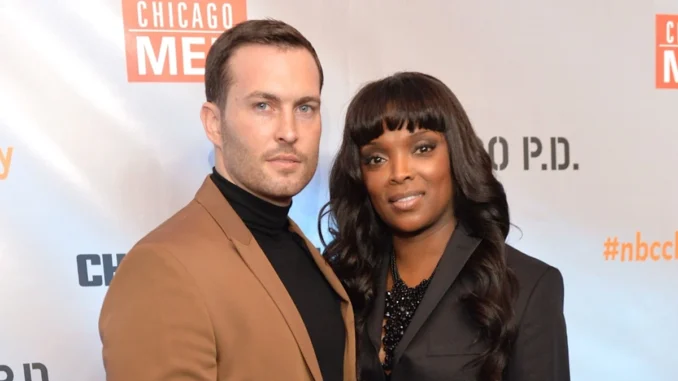
When I walked into Marlyne Barrett’s hospital room, I wasn’t sure what to expect. We’ve shared years together on the Chicago Med set — long hours, emotional scenes, laughter between takes, and countless cups of coffee during early morning call times. But seeing her now, outside the world of Maggie Lockwood and Gaffney Chicago Medical Center, was something entirely different.
Marlyne looked up from her hospital bed with that same warm, grounding smile that has comforted so many of us on set. Even with the pale light filtering through the blinds, even with fatigue written across her face, she radiated calm. That’s just who she is — strength wrapped in grace.
I pulled up a chair beside her. Machines hummed softly in the background, a quiet reminder of the battle she’s fighting every moment of the day. The doctors say her condition has become more complicated. The chemotherapy, while necessary, has taken a toll — her energy fades quickly, and there are days when even sitting up feels like a small mountain to climb. But as always, Marlyne refuses to let cancer define her.
“I’m still here,” she said with a faint chuckle. “And I’m still me.”
Her voice was steady, though a bit thinner than I remembered. She talked about her children — how much they’ve grown in just a few months — and about her husband, Gavin, who’s been her constant companion through every appointment, every sleepless night. She told me that sometimes, in the quiet hours of the morning, she replays scenes from Chicago Med in her head. Not because she misses work, but because the character of Maggie reminds her to keep fighting.
“She’s strong,” Marlyne said softly. “And I want to be as strong as her.”
There’s something surreal about hearing that from the woman who is Maggie — the heart and soul of Chicago Med. The one who has been everyone’s source of comfort, both on-screen and off. And yet, here she is, the fighter behind the fiction, drawing courage from the very role she brought to life.
Her treatment schedule has intensified. The doctors are exploring additional therapies, and while progress has been slower than hoped, Marlyne’s determination hasn’t wavered. She talked about meditation, about prayer, about how the messages from fans have given her daily bursts of hope. “They remind me that I’m not alone,” she said. “And that matters more than anyone realizes.”
We laughed for a while — about inside jokes from set, about the wardrobe fittings that always made her roll her eyes, about Oliver Platt’s impeccable timing when it comes to cracking jokes during serious scenes. But behind her laughter, I could see the effort it took. The pain is real, the fatigue ever-present. Still, she never once complained.
Before I left, she squeezed my hand tightly. “Tell everyone not to worry too much,” she whispered. “I’m fighting. I’m not done yet.”

As I walked out of that hospital room, I couldn’t help but feel humbled. Marlyne Barrett is facing something no one should ever have to endure — yet she carries it with grace, humor, and the quiet strength of someone who has chosen hope over fear.
To those who have followed her journey, please keep sending that love her way. She feels it. Every message, every prayer, every word of encouragement helps her keep pushing forward.
Marlyne may be in a hospital bed now, but her spirit hasn’t dimmed for a second. She’s still the heart of Chicago Med — only now, she’s showing us that the greatest courage isn’t found in scripted heroism, but in the quiet, relentless fight for life itself.
